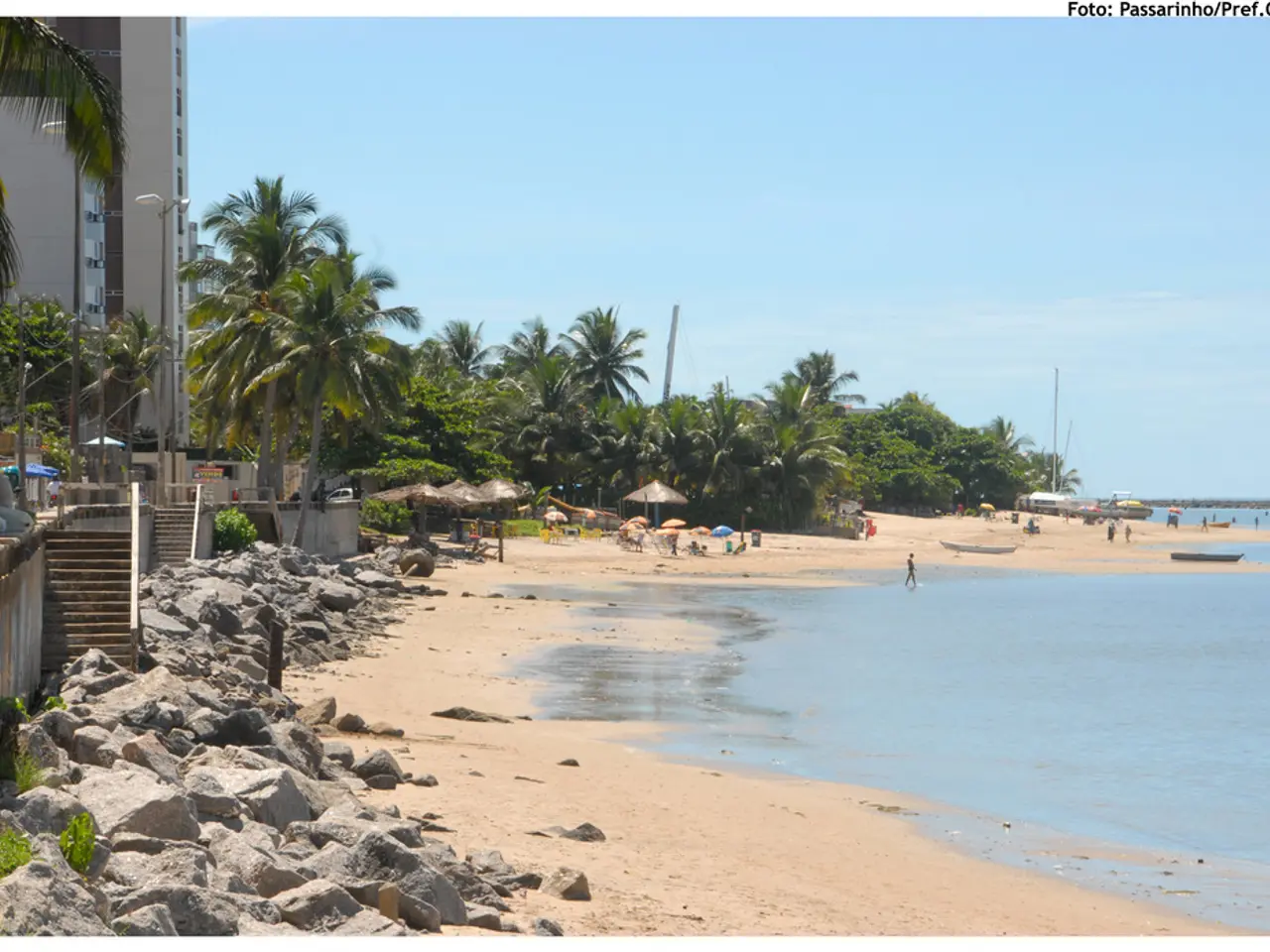Luxury beach visits in Lebanon come with hefty price tags
Beirut, the vibrant capital of Lebanon, is known for its five-kilometer long promenade adorned with palm trees, offering a potential respite for its approximately two million residents during the sweltering summer months. However, a visit to the Mediterranean Sea in Beirut comes with a hefty price tag and potential health risks.
Swimming in the sea requires payment, with average entrance fees at private beach clubs ranging between 17 and 25 euros during the week and up to 51 euros on weekends. For this fee, bathers receive an umbrella with a lounger and a pool to swim in, but the sea along Beirut's coast is considered polluted, making the pool a better option for swimming.
Unfortunately, Ramlet al-Baida, one of the few public accesses to the sea in Beirut, is almost nowhere else in the country as polluted, according to the CNRS research institute's annual report on water quality at Lebanese beaches. This leaves many families with no choice but to bathe at polluted locations due to inability to afford entrance fees to cleaner beach clubs.
The lack of public access is due to expensive beach clubs, private villas right on the beach, or restaurants with sea views occupying a large part of the coast. Only 40 kilometers of the approximately 220-kilometer-long Mediterranean coast of Lebanon are not privatized, as per Ajub's statement. Approximately 80 percent of Lebanon's coast is not freely accessible, according to Mohammed Ajub, director of the NGO Nahnoo.
In Beirut, about 80 percent of the coastline is not freely accessible due to private ownership by beach clubs, villas, and restaurants. The economic crisis in Lebanon, which has been ongoing for years, severely affects the average population's ability to afford trips to beaches outside Beirut.
The economic woes plaguing the country are attributed to decades of corruption in politics and business. Lebanon has been in the worst economic and financial crisis in its history since the end of 2019. Political roadblocks have hindered the completion of crucial infrastructure projects, as per Faradschalla, head of sustainability strategy at the Lebanese-American University in Beirut.
The lack of well-developed public transportation network in Lebanon also makes a day at the beach a luxury for many families. The temperature in Beirut, Lebanon's capital, soars to around 40 degrees during summer with humidity almost at 60 percent.
Despite these challenges, the Lebanese coast is romanticized on social media as a Mediterranean jewel. However, the exorbitant prices to experience it are not shown in these portrayals. This year, water levels are as low as they've been in a long time, further complicating matters for those seeking a refreshing dip in the sea.
Despite these obstacles, there is no political will in Lebanon to improve the state of the beaches or secure more public access, according to Ajub. The lack of clean, accessible public beaches in Beirut is a pressing issue that affects the quality of life for many residents, particularly during the hot summer months.







